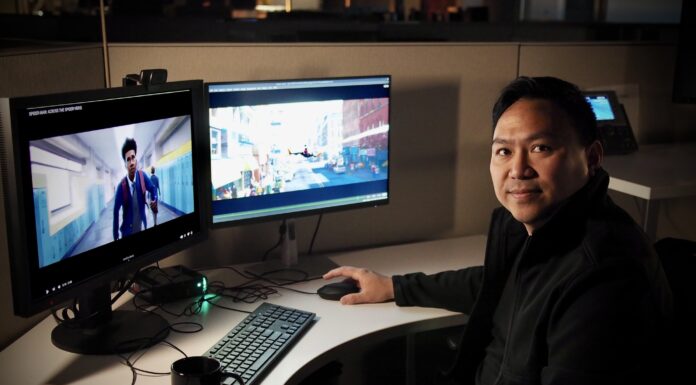BRITON Robert Johnson, a 23-year-old male, thought he would never see the light of day until news about a medical intervention came knocking on his door renewing his hopes. He was treated by replacing defective retinal genes with functional ones through gene therapy, according to BBC News.
Gene therapy, a recent scientific breakthrough, is just but one of the revolutionary applications of biotechnology, defined by Kevin Keener, assistant professor of food science at the North Carolina State University in its official website www. ncsu.edu, as the use of living organisms and their products to modify human health and environment for commercial purposes.
Novartis, an internationally-acclaimed pharmaceutical company, celebrated its third annual international Biotechnology Leadership Camp (Biocamp) last October 6-8 in Roppongi Academy Hills, Tokyo, Japan. A three-day seminar-workshop discussing the various aspects of biotechnology, Biocamp disseminates first-hand information on biotechnology and its global effects to the delegates sent by different countries worldwide.
Launched in 2004, Biocamp was first held in Taiwan.
According to Annelyn L. Betia, assistant manager for human resources of Novartis Philippines, Biocamp seeks to promote biomedical research and development. “Biocamp is our way of giving something back to the biotechnology sector by gathering talents from all over the globe, and giving them the latest updates in Biotechnology,” Betia said.
Aside from promoting biotechnology, Betia also said that Novartis, through Biocamp, supports Asia-Pacific countries in the local development of biotechnology by expanding its industry by providing venues for experts to collaborate in research projects.
Pinoy ‘biocampers’
After a series of roadshows and promotions in Metro Manila, top universities such as UST, UP, Ateneo, and La Salle, Novartis Philippines held piece Biocamp last August 10 in Best Western Astor Hotel in Makati City.
In the Biocamp, Novartis invited experts in the biotechnology industry such as Dennis Posadas, Asiamedia contributing writer, Business World technology columnist, and author of the book Rice & Chips: Innovation and Technopreneurship in Asia, who talked about new trends in biotechnology. In the same event, Novartis officially opened the application to the international Biocamp in Japan.
After the screenings, only two out of 60 were chosen to represent the Philippines in Japan – Carla Bianca Victorio, a UP magna cum laude graduate of Molecular Biology and Biotechnology, and Michael Bahrami-Hessari, a UST College of Science faculty member who is currently completing his master’s degree in Microbiology at the Graduate School.
‘Mushi-mushi’ Biocamp
According to Betia, Biocamp is usually attended by postgraduate science students. However, for this year’s Biocamp, students from management courses were also accepted as delegates because of the marketing aspect of pharmacy and biotechnology.
“Students in business-related postgraduate courses such as Masters in Business Administration were included in choosing the delegates due to the demand of increasing the knowledge on marketing in the field of biotechnology,” Betia said.
Betia told the Varsitarian the activities included interactive question-and-answer portions and workshop sessions where participants were able to network, exchange knowledge and expertise, and develop new insights on successful biotechnology business ventures.
For Biocamp’s first day, Bahrami-Hessari and Victorio attended lectures tackling innovation and international leadership. Workshops were also held wherein the two Filipino delegates individually teamed up with participants from other countries to formulate their own pharmaceutical products with a case study, which they defended in front of a panel of biotechnology experts. Bahrami-Hessari’s group chose to formulate concepts for a drug that would combat obesity while Victorio’s group presented a drug that would cure cataracts.
The second and third days were spent on lectures on recent trends in biotechnology and on developing a career in biotechnology, respectively.
Among the lecturers was H. Robert Horvitz, winner of the 2002 Nobel Prize in Medicine and Physiology for his study “Genetic Control of Nematode Development and Behavior,” and a professor of the Massachusetts Institute of Technology. Horitz presented a lecture titled “Cell Suicide: Programmed Cell Death in Development and Disease.”
Other lecturers were Dr. Kiyoshi Kurokawa, a former president of the Science Council of Japan and a professor emeritus of the University of Tokyo who talked about the innovation and potentials of biotechnology to advance medical knowledge and practice, and Dr. Seigo Izumo, recipient of the 2007 Wall Street Journal technology innovation award and global head for cardiovascular research of the Novartis Institute for Medical Research, who spoke about “The Renin Inhibitor – Aliskiren.”
Paul Herrling, the National Institute for Tropical Diseases’ head of corporate research, Juergen Brokatzky- Geiger, head of Novartis’ Human Resources, and Reinhard Ambros, head of Novartis’ Venture Fund, also talked about biotechnological updates throughout the world.
As innovations and new discoveries in the field of biotechnology kick off, Betia said that Biocamp will continue to hone young and deserving minds in the field. “With biotechnology as a booming sector in society, we will continue to search and train new scientists for Biocamp, and help the industry to widen its horizons and be known to all,” she said.











